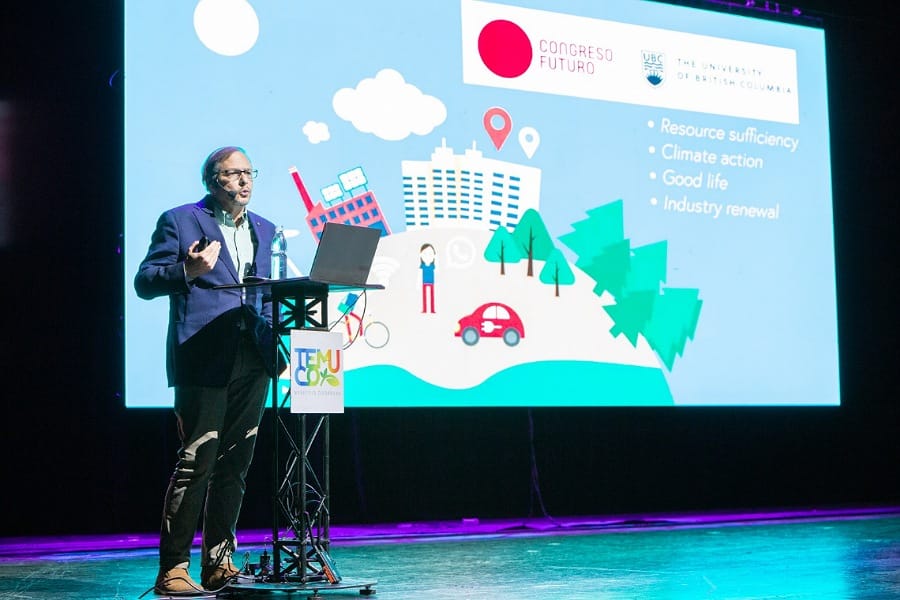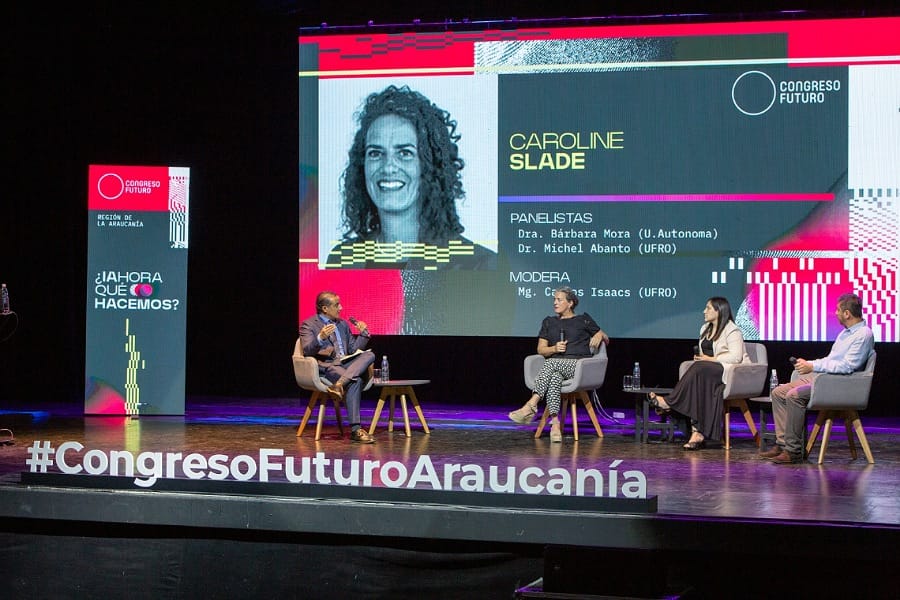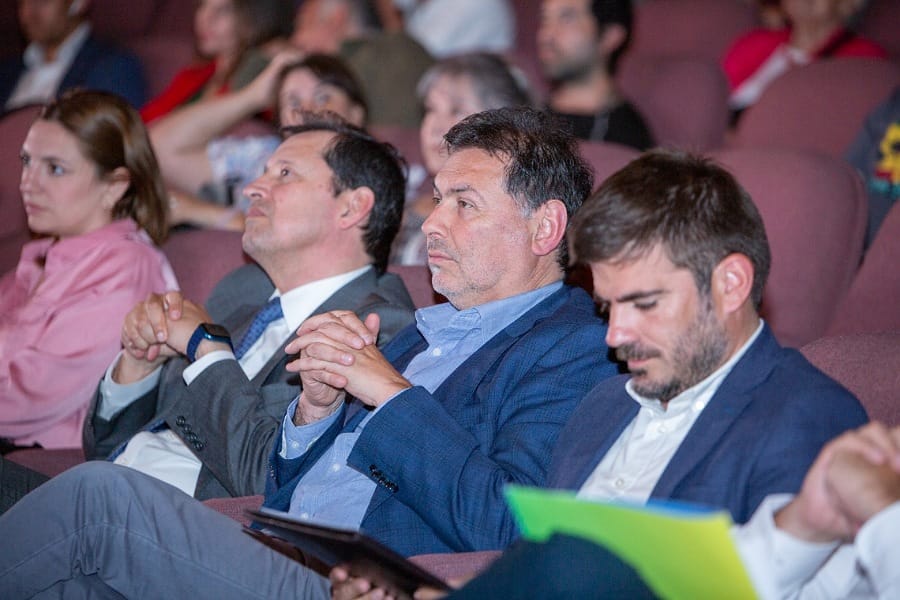|
National and international experts participated in this congress for knowledge dissemination, organized by Universidad de La Frontera, Universidad Autonoma de Chile, and the Municipal Theatre of the city of Temuco. |
The advances in genomics and sequencing to understand the human impact on remote areas and the research on biopolymer nanomaterials such as nanocellulose and lignins in search for alternatives to fossil resources were only some of the topics of the Congress of the Future Araucanía 2024. Hundreds of people, local and regional authorities, students, researchers and academics came together at the Municipal Theatre of the city of Temuco to participate in this event for scientific dissemination, which was open to the community and organized by the Chilean Senate’s Future Challenges Commission. In the La Araucanía Region, the congress was coordinated and carried out by Universidad de La Frontera (UFRO), Universidad Autonoma de Chile, and the Municipal Theatre of the city of Temuco. The two invited international speakers were Dr. Orlando Rojas, an expert in renewable materials, nanotechnology and biopolymer nanomaterials, and Caroline Slade, the Director of Distribution and Latin American Operations of Oxford Nanopore Technologies (ONT), a US-based company that develops third-generation sequencing technologies. The main topic of this year’s version of the Congress of the Future was Artificial Intelligence (AI), a technology that certainly presents the greatest impact and challenges for humanity. Under the motto “What do we do now?” the congress aimed to explore the ethical and governance issues, opportunities and challenges of AI for our society. “AI permeates all fields of knowledge, and therefore, we have to know how to use it as another tool to improve the development of knowledge. The participation of both universities in this event is very important because it allows us to disseminate science, which is very important for our region”, explained Dr. Rodrigo Navia Diez, the vice-rector for Research and Graduate Studies of Universidad de La Frontera. “Both universities put all their capabilities to the service of society, united in the organization of this event, the Congress of the Future, which is a celebration of science. This is a unique opportunity to bring outstanding international experts to our region, to show us the advances in Artificial Intelligence. AI has an impact on every section of our society and that is why we need information about its impact and risks”, said Dr. Iván Suazo, the vice-rector for Research and Doctoral Programs of Universidad Autonoma de Chile. SPEAKERS The Congress of the Future 2024 consisted of two panel discussions, with two international speakers and several expert panelists from Universidad de La Frontera (UFRO) and Universidad Autonoma de Chile (UA). “We need a common effort of different universities, countries and society to solve the issues of the future: climate change, resource shortage and the improvement of people’s quality of life. What we are trying to do at my university and through my fields of research is to create a sustainable, pleasant world, where life can flourish”, explained the bioengineer, professor, and director of the Bioproducts Institute of the University of British Columbia, Dr. Orlando Rojas, who led the first panel discussion of the congress. The academic Juan Pablo Cárdenas of Universidad Autonoma de Chile moderated this first panel discussion with the panelists Daniela Quintana (UA) and Eduardo Cisternas (UFRO). The second panel discussion, with the national panelists Bárbara Mora (UA) and Michel Abanto (UFRO), was moderated by Carlos Isaacs (UFRO) and led by the international speaker Caroline Slade, who is the Director of Distribution and Latin American Operations of Oxford Nanopore Technologies. “Sequencing technologies have many practical applications. One of them is microbiology and infectious diseases: to be able to categorize a disease at an early stage to know which drug to use. For example, to differentiate if a person has Covid-19 or another respiratory disease. It is a very pleasant experience to be in the La Araucania Region. The level of science carried out here is very high”, commented the international expert Caroline Slade.
Written and translated by: UFRO Communications Office
|







